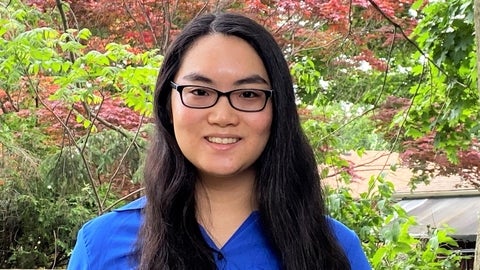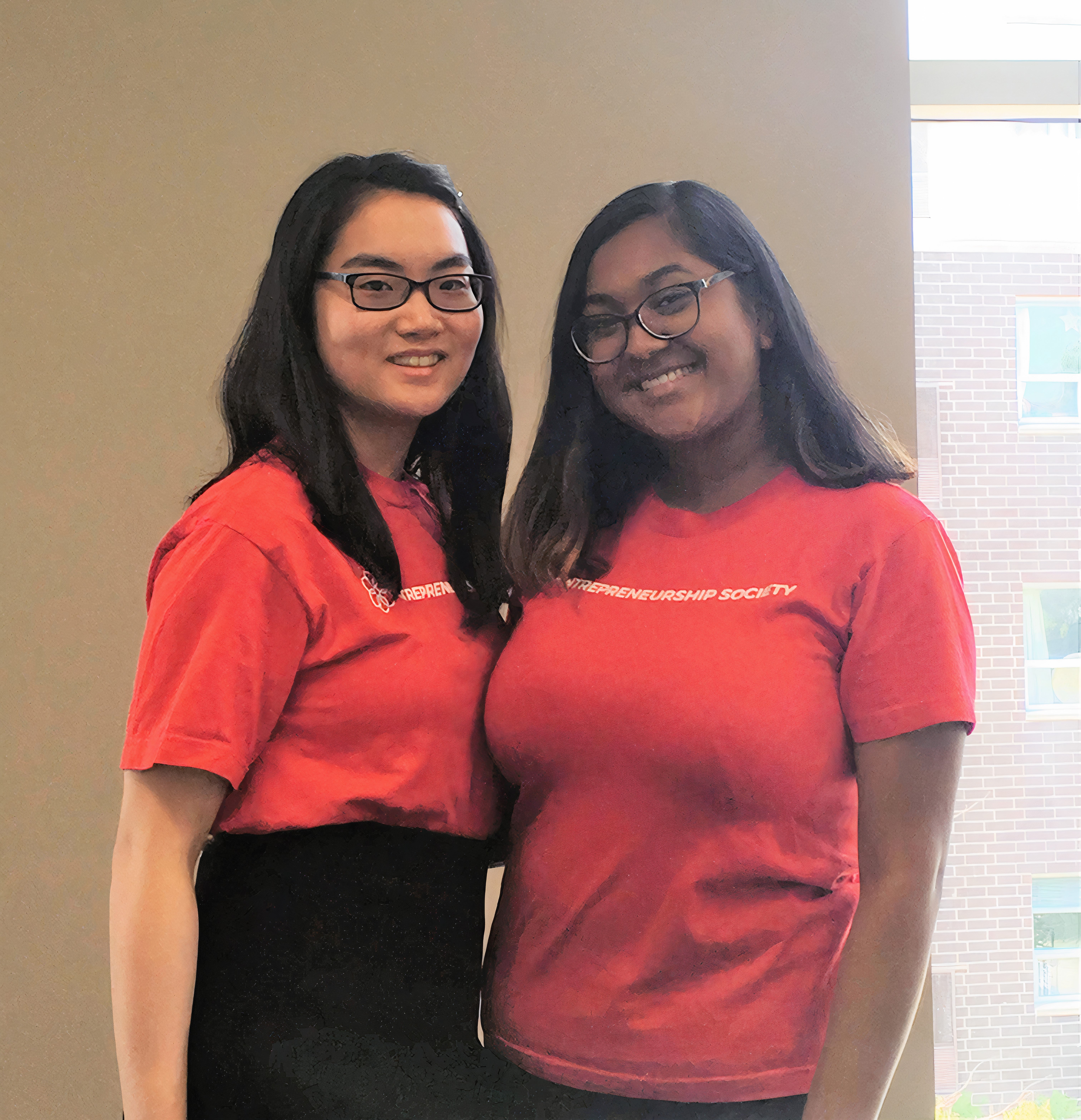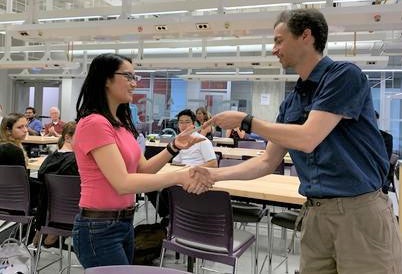
Engineering graduand mentors others to pursue an education in STEM
By Carol TruemnerFaculty of Engineering
After being told by a high school teacher that she wasn’t smart enough to pursue a post-secondary engineering education, Amy Tai has proven him wrong. In a big way.
With a cumulative average of over 98 per cent, the newly minted engineering graduate was the top student in her management engineering program for every term and has already started a master’s degree at Waterloo.
When not hitting the books, she makes time outside of the classroom to motivate others to consider a STEM education by promoting engineering to prospective students and mentoring current students.
Some of her many extracurricular activities as an undergraduate student included volunteering as a University of Waterloo engineering ambassador, a first-year management engineering mentor and a student ambassador for the Ontario Network of Women in Engineering.

“Before starting at Waterloo, I talked to some upper-year students who were really helpful to me,” she says. “I also wanted to inspire people to explore their passions.”
Earlier this year, she was a student mentor with The Future City Experience, an initiative that challenges students in grades 6, 7 and 8 to design a futuristic lunar city.
Using her engineering background, Tai remotely supported a Grade 7 class at Durham Catholic Virtual Elementary School with its model project.
Amy Tai, left, and Sara Ahmed, were co-presidents of the Waterloo Entrepreneurship Society for a term in 2019.
Tai also held a couple of Waterloo Engineering Society positions and was co-president of the Waterloo Entrepreneurship Society, a student-run club focused on making University entrepreneurial resources and opportunities accessible to students.
This spring, she began volunteering as a Canada-Africa Innovation Fellow with Engineers Without Borders Canada.
Immersed in different disciplines
When it came to selecting a university to attend five years ago, the London, Ontario native chose Waterloo for both its management engineering and co-op programs.
“Management engineering was much more than I expected in terms of the diversity of courses and spending co-op terms in different career fields and industries,” she says. “I really got to immerse myself in different disciplines and figure out what I wanted to do.”

Mark Smucker, a management engineering professor, congratulates Amy Tai for receiving the First in Class Award for her 1B and 2A terms as well as being named to the Dean's Honour List.
Throughout Tai's undergraduate degree, it was the people she met in the classroom and beyond who made a positive difference to her overall experience.
“It is often said that the best part of a job or company is the people who work there,” she says. “This is one of the reasons I enjoy Waterloo so much. I wouldn’t be where I am today if I didn’t have the support and assistance from my professors, TAs, classmates and Waterloo alumni as well as family and friends.”
Focusing master's research on cancer detection
Support also came from employers on her co-op terms, including her last one spent as a data and applied scientist intern for Microsoft.
Her impressive accomplishments over four months at the end of 2021 helped her land a job with the company starting this summer.
Working remotely for Microsoft’s Vancouver-based office, Tai will be able to continue her master’s degree in systems design engineering part-time.
She is focusing her research on cancer detection through medical imaging supervised by Alexander Wong, a systems design engineering professor and the Canada Research Chair in AI and Medical Imaging.
Tai sees her work at Microsoft and her graduate studies as providing the ideal combination of skills to build on in the future.
“Microsoft will teach me best practices such as how to code and how to be able to organize while my master’s will teach me how to learn effectively, how to research effectively and how to ramp up on my skills,” she says.
'Just do it'
Reflecting on her high school teacher’s reaction to her goal of pursuing an engineering degree, Tai’s advice to any prospective student is to follow a passion or interest regardless of what others say.
“If you think you can’t do something, just do it,” she says. “There’s plenty of time to learn what you need to achieve your goals.”